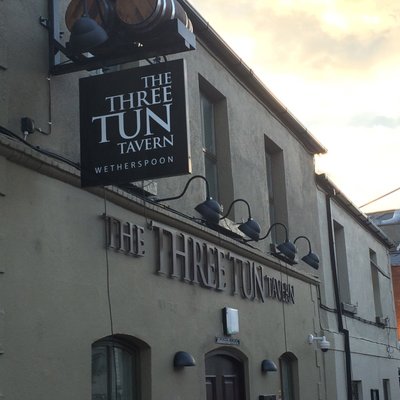My thousandth post! When I began this blog on 16 March 2009, I intended it mainly to tell people about local music or real ale events, especially those that included both. It still does that with my events and beer festival links to the right, but I have expanded the remit to suit myself, but generally staying broadly in the ale and music theme.
The forerunner of ReARM was a flyer that I used to produce monthly and distribute around any suitable places - there is an example below - but in reality, this was not an efficient method of transmitting information and, after I left my last job, dependent on how much of my own printing ink I was prepared to use. The idea of doing a blog came to me after I'd become a follower of
Tandleman's beer blog, and at the Winter Ales Festival in Manchester in 2009, I asked him how much it cost to run a blog. "Nothing, it's free," he replied, sounding slightly surprised at the question. It's then that I decided to begin a blog.
 |
| The forerunner of ReARM |
Looking back, I see that my most read post is
The Lost World Of Smoking on 22 June 2012, which has had 2207 page views so far. I wanted to write a personal view of smoking from the perspective of a non-smoker upon whom smoking has nonetheless had quite an impact in life. It was definitely not about the smoking ban, which
I wrote about on 28 November 2009 (75 page views), provoking this surprising response from beer blogger
Curmudgeon: "This has been debated elsewhere
ad nauseam ..."! It's curious that my most-read post covers neither beer nor music, but it didn't occur to me until much later that I'd gone off topic. Despite that, it's a personal post that I'm still happy with. In contrast, one post has had no page views at all; I won't mention which since it was about a local event, and the people concerned are still around.
I sometimes click on the "Next Blog" link at the top of the home page to see what comes up. It surprises me how many blogs are inactive with fewer than half a dozen posts, after which the blogger seems to have lost interest, often despite lofty intentions expressed at the beginning. Perhaps they had dreams of fame through blogging and became disheartened when it seemed that only two men and a dog were reading their masterpiece. Or perhaps they'd simply run out of ideas.
When I was off-line for three and a half months earlier this year, I received a fair number of enquiries about people asking why my blog had become out of date; it was nice to have clear evidence that some people had missed it. For better or worse, it's going to be here for a while yet. Now the big question is: what shall I write for my 1001st post?
 I met some friends for an early evening drink in the Sir Henry Segrave in Southport a couple of days ago. On the bar there was, among the remnants of the cider festival, a George Wright beer called Northern Lights (5.1%). I have to say I could have happily stayed and drunk it all night, but we had to move on. The brewer's website states that it is "A strong ale, amber in colour. A strong citrus ale balanced by the bitter hop." That is almost word for word how I described it to one of my friends later, although I'd have thought it was paler than 'amber' suggests. Definitely a strong citrus, bitter flavour, which reminded me of some of the American-style pale ales Wetherspoons sometimes commissions.
I met some friends for an early evening drink in the Sir Henry Segrave in Southport a couple of days ago. On the bar there was, among the remnants of the cider festival, a George Wright beer called Northern Lights (5.1%). I have to say I could have happily stayed and drunk it all night, but we had to move on. The brewer's website states that it is "A strong ale, amber in colour. A strong citrus ale balanced by the bitter hop." That is almost word for word how I described it to one of my friends later, although I'd have thought it was paler than 'amber' suggests. Definitely a strong citrus, bitter flavour, which reminded me of some of the American-style pale ales Wetherspoons sometimes commissions.


























